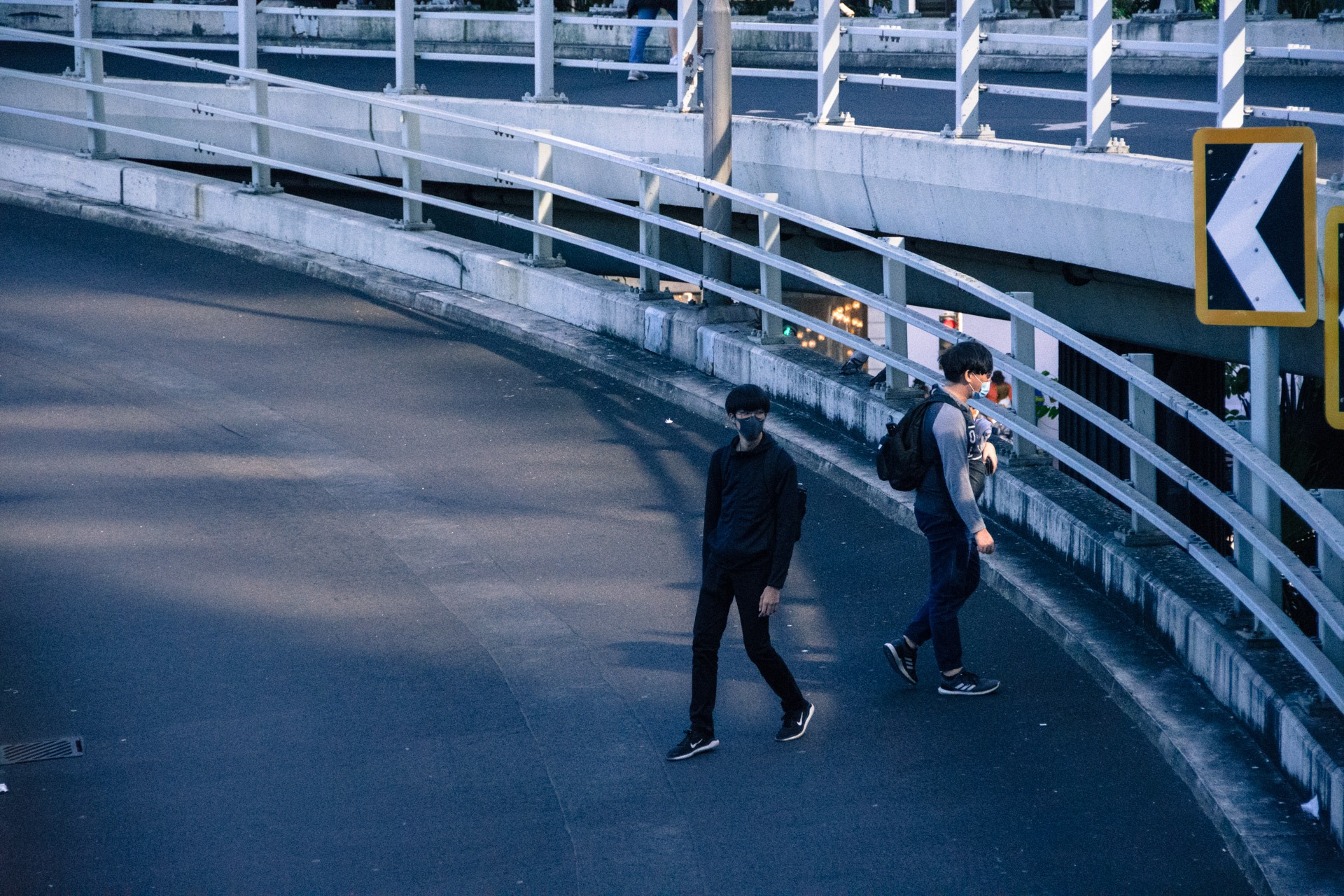On October 29, Hong Kong student activist Tony Chung was formally charged with secession under the National Security Law (NSL). Chung was apprehended outside the US Consulate two days prior, where he intended to seek asylum. That same day, four other activists with protest-related charges sought refuge from the US Consulate as well, but “were asked firmly by consulate staff to leave,” according to the group’s spokesperson. One of those four was a US citizen and was enraged that the US Consulate refused to provide more support to a citizen who was involved in Hong Kong’s pro-democracy movement.
This case was disappointing to many Hong Kong activists who face increasing risk of persecution under the NSL, and contemplate seeking refuge in the US, UK, or Canada. Since US politicians and officials have been vocal critics of the Chinese government for its suppression of the Hong Kong protest, many Hongkongers expected the US government to provide assistance and grant asylum to activists fleeing persecution. However, despite the US State Department’s recent announcement that they would prioritize refugees from Hong Kong, the most recent case at the US Consulate reveals that Washington’s “tough on China” rhetoric is insufficient in protecting Hong Kong dissidents. Given rising tension between Beijing and Washington, political scientists and journalists have argued that providing refuge to activists—even if they are US citizens—from within Hong Kong could “cause a diplomatic firestorm” that puts the US Consulate in Hong Kong in jeopardy.
The US, in other words, has chosen to prioritize its own interest over those of Hong Kong activists. As seasoned organizer Au Loong-yu reminds us, “The United States’ national interests are not the same as the best interests of the Hong Kong people.”
Chung’s case is the tip of the iceberg of US immigration’s cruel track record. US immigration policies have been designed only to welcome immigrants who can contribute to the US’ economic or national interests. The US routinely denies asylum and refugee resettlement cases on the smallest infraction, admitting only those who are beneficial to the US’ global interests and image. An immigration lawyer who has worked extensively with refugees points out that the US immigration system’s “inclination is not to say yes. The default is no.”
During the Obama administration, asylum seekers from Central America were deported in large numbers–at least 83 of them were killed in their home country after being sent back. In fact, by the end of Obama’s two terms, his administration had removed more than 2.5 million people—more than the sum of all US presidents in the 20th century. Immigration advocacy groups have dubbed him the “deporter in chief.”
US immigration policies have only worsened under Trump, who got elected on an anti-immigration platform. Just weeks before his re-election bid, US immigration authorities began deporting a large number of Haitian asylum seekers, and used coercive measures to force Cameroonian asylum seekers into signing their own deportation orders. These forced repatriations violate the customary international law of non-refoulement, which seeks to protect asylum seekers and refugees from persecution in their home countries.
These examples illustrate that the US government has few qualms about deporting people to countries where they would likely be harmed or murdered. While the US Consulate in Hong Kong is not legally obligated to provide refuge to Hong Kong dissidents on the spot, the US’ record of forced repatriation demonstrates that even if Hong Kong activists successfully made it onto US soil, they will still be at risk of being sent back.
While asylum seekers and refugees have always had to undergo long and emotionally draining vetting processes before settling in the US, the Trump administration has implemented restrictive policies that make it even more difficult to seek refuge. According to the International Refugee Assistance Project, Trump’s 2016 “extreme vetting” policy caused delays in tens of thousands of refugee applications and has been gradually “dismantling the infrastructure for refugee resettlement.” More recently, the Trump administration announced that the US would drop the cap of resettled refugees to a record low of 15,000.
While these policies have disproportionately affected refugees from Muslim-majority countries, they will inevitably impact Hong Kong activists who apply for refugee resettlement in the US too. This is why it is crucial for Hongkongers to link up with activists in the transnational migrant and refugee justice movement, such as the National Immigrant Justice Center, Take Root Justice, Grannies Respond, and the Refugee and Immigrant Center for Education and Legal Services. These migrant rights groups have long advocated for systemic change. Many, for instance, call for the abolition of the US Immigration and Customs Enforcement, an agency that has detained and deported asylum seekers with rightful claim of persecution.
By learning from and joining forces with the current migrant justice movement, Hongkongers can more effectively exert pressure on the US government and ensure that dissidents seeking refuge will receive humane treatment. These connections can also inform our pursuit for migrant justice locally and remind Hong Kong protesters that they should stand with existing efforts to support refugees and asylum seekers in Hong Kong and detainees in the Castle Peak Bay Immigration Center.
Given the US’ restrictive immigration policies and its geopolitical tension with China, the status of Hong Kong asylum seekers and refugees remains precarious. So rather than taking the US government’s support for Hong Kong at face value, it is crucial to develop an orientation towards transnational migrant justice, and understand how the US’ restrictive immigration policies against refugees and asylum seekers affect not only people in Central America, the Middle East, and Africa, but Hong Kong protesters too.




